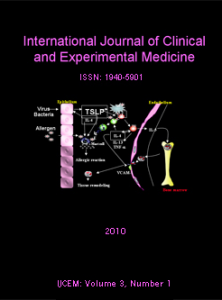The authors of a paper about the benefits of an antioxidant found in blueberries known as pterostilbene have retracted it after their subsequent research suggested the antioxidant might actually be harmful.
The paper presented evidence that the antioxidant might help rats after heart attack, in part by inhibiting cell death (apoptosis). But according to the retraction note, more work
found that pterostilbene might induce apoptosis in the heart and can be harmful, and we are now focusing on the phenomenon.
The rest of the retraction note for “Pterostilbene attenuates inflammation in rat heart subjected to ischemia-reperfusion: role of TLR4/NF-κB signaling pathway,” published in the International Journal of Clinical and Experimental Medicine, suggests that the authors would consider republishing their findings if they became more confident in the data:
The conclusion in the article is not so convincing to a great extent and we want the article to be retracted until the conclusion is definitely convincing.
We’ve seen a few recent instances where authors have retracted an article after learning that a conclusion was wrong, including a paper on a method for making opal films that the authors couldn’t reproduce, and a Nature letter that misattributed an interesting effect to quantum dots.
The paper has not been cited, according to Thomson Scientific’s Web of Knowledge.
We reached out the editor in chief of the journal, and the corresponding author Lei Zhao, who works at Fourth Military Medical University in China, for more information. We’ll update this post with anything else we learn.
Like Retraction Watch? Consider making a tax-deductible contribution to support our growth. You can also follow us on Twitter, like us on Facebook, add us to your RSS reader, and sign up on our homepage for an email every time there’s a new post. Click here to review our Comments Policy.

This finding (that an antioxidant might actually induce apoptosis and might actually be harmful) is, I’m afraid, the story of the life of many plant-based antioxidants. Whether they are “helpful” or “harmful” has not been established at all, just that there are many plant-based antioxidants and that they do something to human metabolism. The rush to find plant-based compounds that are helpful to human longevity has resulted in many erroneous laboratory findings… like this one.
Conrad, can you support your last claim with a few more concrete examples, please.
Not to mention a huge industry attempting to sell supplements that are ineffective.